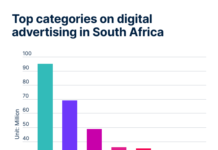Most businesses will have a good experience by opening themselves up to reviews on social media – around 80% of reviews are positive. This is according to Ashleigh Wainstein, Director of Martech firm, Social Places.
An effective strategy for responding to online reviews is good for business and can help companies enhance their reputation and improve operations. Consumers are increasingly using online reviews as their primary source of recommendations for goods and services. Engaging effectively with online reviews is an important way for companies to improve relationships and customer loyalty with existing customers and to attract new business. The data and insights gained from reviews can also be used to improve operations internally.
Realistically, there’s nowhere for businesses to hide online and managing and responding to reviews on social media, even if they are negative, has a positive outcome. Reviews are important for brands because they create credibility in the mind of consumers – 84% of people trust online reviews as much as a personal recommendation. People looking for recommendations online typically won’t approach a business with fewer than four out of five stars – they’ll simply look elsewhere.
Generally, consumers will search online for a business near them and these proximity stats have shot up 500% in the last two years. When those listings are displayed on search results, the one with the highest review score will get the click to call or navigate to the location.
Businesses accept the need for reviews and understand that they should embrace them. Not having a review strategy is the equivalent of consumers calling a customer care line and having no-one answer the phone. Companies that don’t monitor reviews lose the chance to win back negative customers as well as get feedback from those who are happy.
They also lose out on valuable business insights. Step one is to acknowledge the customers’ complaints or compliments by taking note of feedback from reviews. Instead of using mystery shoppers, for example; decision-makers can use review data from thousands of people to identify what is working in their business, and what isn’t. It helps them gauge how the company is performing.
However, the numbers that large companies and brands have to deal with are substantial. In one month alone, some fast food brands in South Africa can receive up to 30,000 reviews.
Our technology to deal with communication at this scale is advanced. There are review consolidation tools that measure consumer sentiment and help to inform operational and marketing functions. From the data, we collect we can categorise review sentiment into primary and secondary, positive and negative.
Brands like Spur answer 100% of their reviews, as do RocoMamas, Panarottis and John Dory’s. Ocean Basket is also very proactive in answering all customer feedback– from customer reviews on social media to feedback from their website.
When dealing with reviews, it is key that a response sounds like it’s personal and that the customer feels that they have been heard. Even though we’re starting to use higher levels of artificial intelligence to process and respond to consumers, there’s always a human, personal touch on top – responses go through a check process before they are published. Responses to good reviews should include strategic keywords that boost search rankings. With bad reviews, it’s important to provide balanced responses that have strong calls to action, taking the conversation offline.
All industries – from restaurants and retail to financial services and telecommunications – are showing growth in online consumer interaction, so the effective monitoring and management of online reviews is crucial.










